
Jonathan Lambert
Staff Writer, Biological Sciences, Science News
Jonathan Lambert joined Science News in 2019 as a staff writer covering biological sciences. He earned a master’s degree from Cornell University studying how a bizarre day-long mating ritual helped accelerate speciation in a group of Hawaiian crickets. A summer at the Dallas Morning News as a AAAS Mass Media fellow sparked a pivot from biologist to science journalist. He has previously written for Quanta Magazine, NPR and Nature News.

All Stories by Jonathan Lambert
-
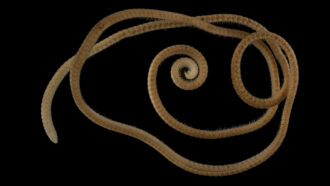 Animals
AnimalsScientists discover the first true millipede
The newfound deep-living species tunnels belowground using a whopping 1,306 legs!
-
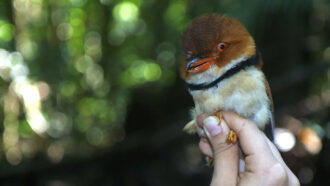 Animals
AnimalsAs the tropics warm, some birds are shrinking
Migratory birds are getting smaller as temperatures climb, studies had showed. New evidence shows dozens of tropical, nonmigratory species are, too.
-
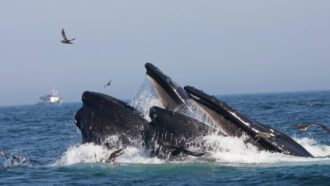 Animals
AnimalsBaleen whales eat — and poop — a lot more than we thought
The amount of food that some whales eat and then poop out suggests these animals have a powerful influence over ocean ecosystems.
-
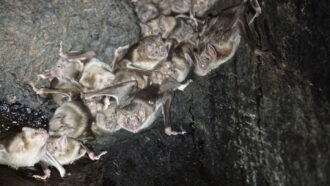 Animals
AnimalsBloodthirsty vampire bats prefer drinking with friends
Vampire bats were known to bond with others in their roost. Now, research suggests bonded bats often drink blood from animals together.
-
 Chemistry
ChemistryChemists win Nobel Prize for faster, cleaner way of making molecules
Both scientists independently came up with new process — asymmetric organocatalysis. That name may be a mouthful, but it’s not that hard to understand.
-
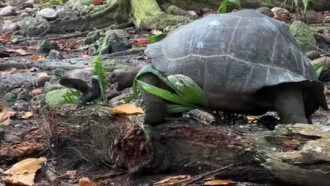 Animals
AnimalsA giant tortoise is caught hunting and eating a baby bird
New video captures the first recorded instance of a tortoise hunting another animal.
-
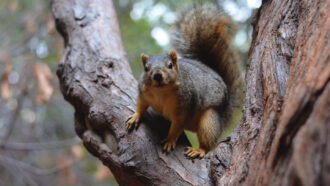 Animals
AnimalsSquirrels use parkour tricks to leap from branch to branch
Squirrels navigate through trees by making rapid calculations. They have to balance trade-offs between branch flexibility and the distance between tree limbs.
-
 Humans
HumansHow COVID-19 testing plans can keep kids safe in school
As U.S. students head back to school, various testing strategies are being rolled out to help keep kids safe during in-person learning.
-
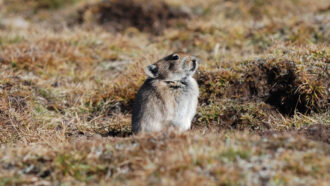 Life
LifeSome pikas survive winter by eating yak poop
Pikas endure bone-chilling cold on the Tibetan Plateau by using little energy and fueling up on yak poop.
-
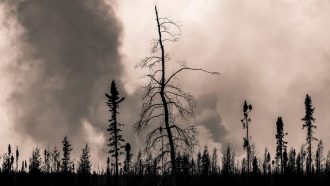 Environment
Environment‘Zombie’ wildfires can reemerge after wintering underground
Climate change may make these not-quite-dead blazes more common. Scientists are learning to predict where a zombie might emerge.
-
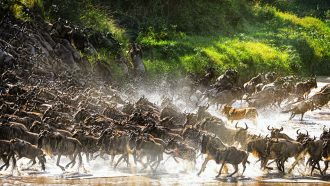 Earth
EarthOnly 3 percent of Earth’s land is unchanged by people
A sweeping survey of land-based ecosystems finds that very few still support all the animals they used to. Reintroducing lost species could help.
-
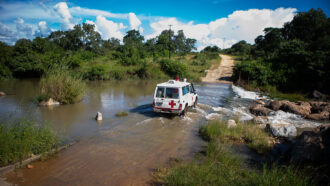 Health & Medicine
Health & MedicineBringing COVID-19 vaccines to much of world is hard
The price of not vaccinating nearly everyone across the world could be a longer pandemic and more troubling variants of the new coronavirus.